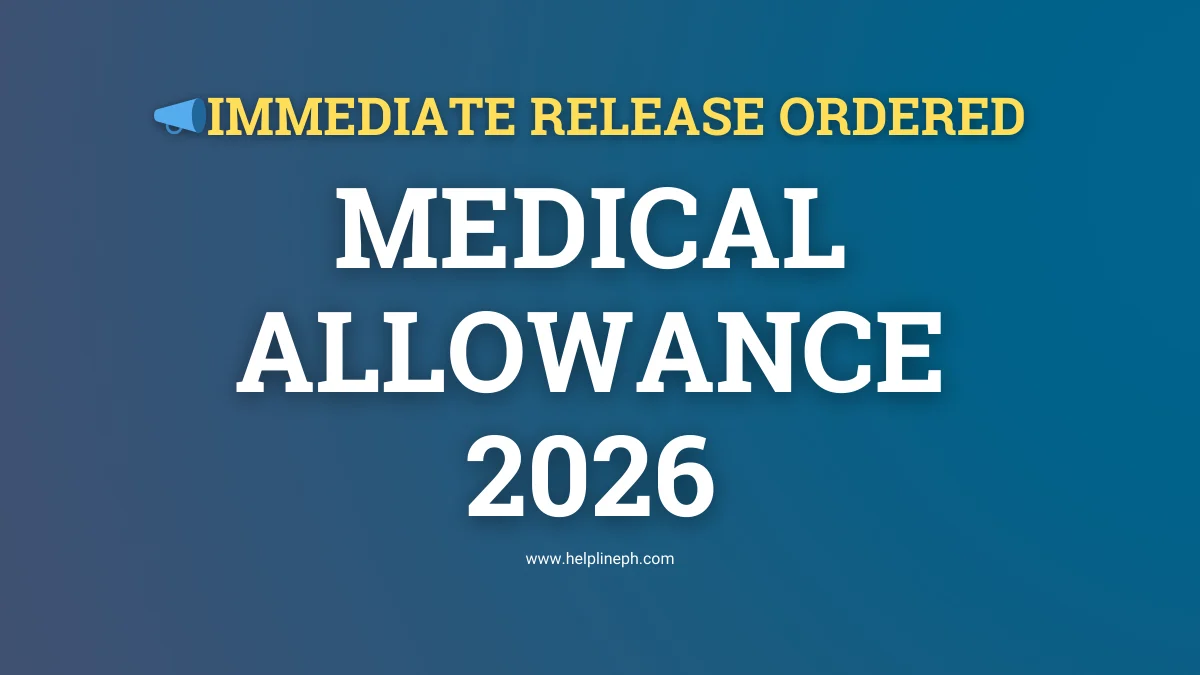What DepEd Order No. 034 s. 2025 Means for Teachers
DepEd Order No. 034 s. 2025 updates and clarifies the rules on how public school teachers in the Philippines are promoted.
This new directive from the Department of Education (DepEd) strengthens the Expanded Career Progression (ECP) System, ensuring that promotions are based on merit, skills, and performance — not just seniority or years of service.
In simple terms, it means teachers will move up the ranks because of what they can do, how well they perform, and how much they continue learning.
⚖️ What Is the ECP System?
The Expanded Career Progression System gives teachers a clearer and fairer path to move up from Teacher I to Master Teacher V, and even to School Principal IV.
Instead of automatic promotions, the ECP uses a competency-based framework that checks a teacher’s:
- Education and qualifications
- Performance and classroom results
- Training and professional development
- Experience and leadership contributions
This system aims to make the promotion process fair, transparent, and professional, rewarding teachers who show real growth and skill in teaching.
🎯 Scope of DepEd Order No. 034 s. 2025
The order applies to:
- Teachers I to VII (Salary Grade 11–17)
- Master Teachers I to V (Salary Grade 14–22)
- School Principals I to IV (Salary Grade 19–22)
It also covers teachers in:
- Kindergarten to Senior High School
- Alternative Learning System (ALS)
- Madrasah Education
- Indigenous Peoples Education (IPED)
- Special Science and Special Needs Education
However, the order does not cover certain positions such as:
- Guidance Counselors and Coordinators
- Librarians and School Farming Coordinators
- Teachers in non-DepEd-managed schools (e.g., Philippine Science High School, State Universities and Colleges)
- Teaching positions in BARMM, unless they adopt the system
This clear scope ensures that only eligible DepEd personnel follow the ECP guidelines.
🧩 Modified Staffing Standards for Master Teacher
A major highlight of DepEd Order No. 034 s. 2025 is the Master Teacher-to-Teacher ratio.
Here’s how it works:
- 1 Master Teacher can be assigned for every 3 or 5 teachers in a specific subject or learning area.
- Teachers handling multiple subjects can still be counted in this ratio, as long as their teaching load is verified and valid.
This system ensures that there are enough Master Teachers to guide other teachers, without overcrowding or favoritism.
🎓 Qualification Standards for Promotion
Promotion is not just about teaching years anymore. The order lists clear qualification rules under the ECP:
1. Educational Attainment
- Higher degrees or extra units (e.g., master’s or doctorate) earn additional points in the comparative assessment.
- Example: A Teacher III with a master’s degree will gain extra points over someone with only a bachelor’s degree.
2. Work Experience
- Experience from both government and private schools can be credited, as long as it’s relevant to the new position.
- Experience as a Head Teacher counts toward both teacher and principal promotions.
3. Training
- Only trainings within the last five years are valid.
- Extra training hours beyond the minimum also earn bonus points.
- This ensures teachers stay updated with modern methods and educational trends.
4. Recognition of Prior Learning (RPL)
- Teachers teaching outside their specialization can still qualify if they’ve spent at least five years in that subject.
- This recognizes the real-world skills and contributions of teachers who adapt to school needs.
🧾 Documentary Requirements Simplified
DepEd simplified the documents needed for promotion and reclassification:
- For School Principals, those appointed before the Principal’s Test or NQESH no longer need to retake it.
- For retitling positions, teachers only need to meet the minimum qualifications—no need for a new comparative assessment.
- Documents already filed (like transcripts or service records) don’t need to be resubmitted.
This change reduces paperwork and processing time for teachers applying for higher ranks.
📊 Performance and PPST Indicators
Teacher performance is now assessed using the Philippine Professional Standards for Teachers (PPST).
These indicators are divided into two types:
1. Classroom-Observable Indicators (COI)
These are skills shown during classroom teaching, such as:
- Lesson delivery
- Student engagement
- Assessment practices
2. Non-Classroom Observable Indicators (NCOI)
These are supporting tasks that show professional growth, such as:
- Lesson plans and learning materials
- Attendance in Learning Action Cell (LAC) sessions
- School or community-based projects
Both types are measured through:
- Classroom Observation Tool (COT-RSP)
- Portfolio Annotations Form (PAF)
- Behavioral Events Interview (BEI)
The results make up 25% of the total comparative assessment score, ensuring that teachers are rated on both teaching skill and professional behavior.
📚 Comparative Assessment for Promotion
DepEd ensures that every promotion is earned.
Teachers (and even non-teaching staff applying for teaching posts) are rated through a comparative assessment process.
For Non-Teacher Applicants:
- They must show classroom proficiency through actual teaching demonstrations.
- Their readiness to teach again will be evaluated based on PPST standards.
For Teacher Applicants:
- Their recent classroom observations can be used as part of the promotion application.
- These must be conducted separately from their performance evaluation.
This process helps DepEd maintain quality teaching standards while promoting fairness in selection.
🕰️ Transitory Provisions: Three-Year Transition Period
DepEd Order No. 034 s. 2025 introduces a three-year transition period (until February 2028) to help teachers adjust to the new system.
During this time, teachers who do not fully meet performance requirements can still be considered for promotion under certain conditions:
- Consistently High Performers
- Teachers with “Very Satisfactory” overall ratings may apply even if they didn’t reach “Outstanding” in some indicators.
- Generally Satisfactory Performers
- Teachers with a few “Satisfactory” marks can still apply if their overall rating is strong.
- Master Teachers Affected by Indicator Changes
- Those affected by the new classification of indicators (COI/NCOI) can still qualify.
- Teachers on Approved Leave
- Teachers who were on maternity leave, scholarships, or official training can apply once they return.
These teachers must sign a Teacher’s Commitment Form, promising to improve specific PPST indicators in their next performance cycle.
📝 Teacher’s Commitment Form on PPST Indicators
Teachers applying under the transition policy must fill out this form, which includes:
- List of PPST indicators they need to improve
- Commitment statement acknowledging areas for growth
- Signatures of the teacher and principal
By signing, teachers agree to:
- Include the target indicators in their performance review
- Take steps to improve within the school year
- Join professional development activities related to those areas
This shows accountability and supports continuous professional growth.
🔍 Monitoring and Evaluation
DepEd emphasized that the implementation of this order must be closely monitored.
Regional and division offices are required to:
- Disseminate the policy to all HRMPSB members and schools
- Conduct capability-building sessions
- Collect feedback and report issues
- Coordinate with the Civil Service Commission (CSC) and other agencies for consistency
This ensures the ECP system works smoothly and fairly for all teachers nationwide.
📅 Effectivity and Compliance
DepEd Order No. 034 s. 2025 took effect immediately upon publication on the official DepEd website (October 13, 2025).
It also repeals any older rules that conflict with its new provisions.
DepEd reminds all offices and schools to strictly comply with the updated guidelines.
💡 Why This Matters
This policy matters because it:
- Promotes fairness and transparency in teacher promotions
- Rewards continuous learning and skill development
- Encourages professional excellence in public schools
- Reduces bureaucratic delays in reclassification
By recognizing both teaching skill and leadership contributions, the ECP system aims to motivate teachers to perform better and keep growing in their careers.
Frequently Asked Questions (FAQs)
What is DepEd Order No. 034 s. 2025?
It is an amendment to DepEd Order No. 024 s. 2025 that clarifies the guidelines for the Expanded Career Progression System for teachers and school heads.
Who can apply for promotion under this order?
Teachers, Master Teachers, and School Principals from kindergarten to senior high school levels with permanent appointments can apply.
Are trainings older than five years valid?
No. Only trainings from the last five years are considered valid for promotion.
What happens if I’m on leave during the promotion period?
You can still be considered during the transition period if you commit to improving performance upon return.
When will the transition period end?
The three-year transition period ends on February 24, 2028.
Do I need to retake the Principal’s Test for promotion?
No. Principals appointed before the implementation of NQESH or NASH no longer need to submit a Certificate of Rating.
DepEd Order No. 034 s. 2025 strengthens how teachers grow in their careers.
It’s not just about years of service anymore — it’s about competence, commitment, and continuous improvement.
As a teacher, this order reminds me that growth never stops. Whether through training, classroom innovation, or community service, each step forward builds a stronger foundation for quality education in the Philippines.
So, if you’re aiming for your next promotion, start preparing now — because under this new system, your effort and excellence truly count.






